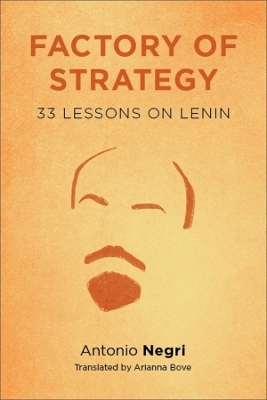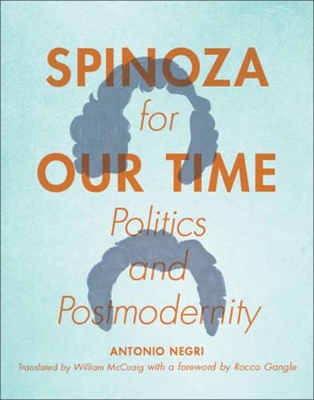Insurrections: Critical Studies in Religion, Politics, and Culture
2 total works
Factory of Strategy is the last of Antonio Negri's major political works to be translated into English. Rigorous and accessible, it is both a systematic inquiry into the development of Lenin's thought and an encapsulation of a critical shift in Negri's theoretical trajectory. Lenin is the only prominent politician of the modern era to seriously question the "withering away" and "extinction" of the state, and like Marx, he recognized the link between capitalism and modern sovereignty and the need to destroy capitalism and reconfigure the state. Negri refrains from portraying Lenin as a ferocious dictator enforcing the proletariat's reappropriation of wealth, nor does he depict him as a mere military tool of a vanguard opposed to the Ancien Regime. Negri instead champions Leninism's ability to adapt to different working-class configurations in Russia, China, Latin America, and elsewhere. He argues that Lenin developed a new political figuration in and beyond modernity and an effective organization capable of absorbing different historical conditions.
He ultimately urges readers to recognize the universal application of Leninism today and its potential to institutionally-not anarchically-dismantle centralized power.
He ultimately urges readers to recognize the universal application of Leninism today and its potential to institutionally-not anarchically-dismantle centralized power.
Antonio Negri, one of the world's leading scholars on Baruch Spinoza (1632-1677) and his contemporary legacy, offers a straightforward explanation of the philosopher's elaborate arguments and a persuasive case for his ongoing relevance. Responding to a resurgent interest in Spinoza's thought and its potential application to contemporary global issues, Negri demonstrates the thinker's special value to politics, philosophy, and related disciplines. Negri's work is both a return to and an advancement of his initial affirmation of Spinozian thought in The Savage Anomaly. He further defends his understanding of the philosopher as a proto-postmodernist, or a thinker who is just now, with the advent of the postmodern, becoming contemporary. Negri also connects Spinoza's theories to recent trends in political philosophy, particularly the reengagement with Carl Schmitt's "political theology," and the history of philosophy, including the argument that Spinoza belongs to a "radical enlightenment."
By positioning Spinoza as a contemporary revolutionary intellectual, Negri addresses and effectively defeats twentieth-century critiques of the thinker waged by Jacques Derrida, Alain Badiou, and Giorgio Agamben.
By positioning Spinoza as a contemporary revolutionary intellectual, Negri addresses and effectively defeats twentieth-century critiques of the thinker waged by Jacques Derrida, Alain Badiou, and Giorgio Agamben.

